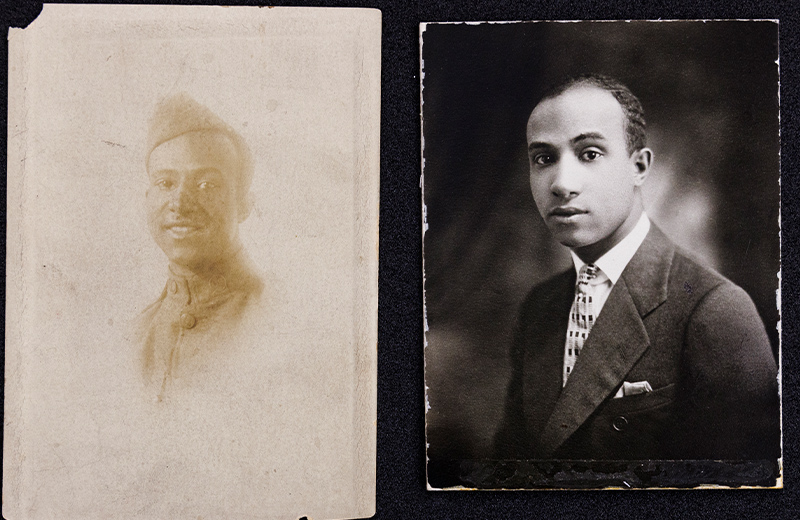-and-
The Singleton and Lockett collections are the Veterans History Project’s first from African American veterans of World War I, and their letters, journals and photographs offer glimpses into the adversity and resilience that characterize the African American experience of that war.
Source: Library of Congress
Posted By Neely Tucker [This is a guest post by Nathan Cross, an archivist in the Veterans History Project]
Images: Courtesy [Cover Photo Caption: Arthur Singleton, at war and at peace. Photos: Veterans History Project.]
As far as we know, Arthur Singleton and Jessie Lockett did not know each other when they arrived in France with the American Expeditionary Forces in autumn 1918.
Their fates intertwined years later, when their families united through the marriage of Lockett’s son to Singleton’s daughter — and again in 2024, when their mutual granddaughter donated their manuscript collections to the Veterans History Project.
The Singleton and Lockett collections are the Veterans History Project’s first from African American veterans of World War I, and their letters, journals and photographs offer glimpses into the adversity and resilience that characterize the African American experience of that war.
As his journal shows, Singleton, a sergeant in Company E of the 803rd Pioneer Infantry Regiment, was a leader in both military matters and his unit’s social and intellectual life. He joined a literary society, sang in theatrical performances and co-founded a soldiers’ fraternal organization called the Seven Brothers Club. The journal also reveals racist treatment he and his comrades faced: A canteen run by a charitable organization denied them service, and taunts greeted them at another unit’s theatrical performance. His company entered the front lines at 5 a.m. on Nov. 11, 1918, and manned the trenches until the war-ending armistice went into effect at 11 a.m.

Lockett served as a stevedore, undoubtedly hazardous and difficult duty. His letters home, however, make clear that his separation from spouse Amanda Lockett was the most difficult aspect of his deployment. The couple ran a small farm in Georgia, and their letters hint at the financial difficulties caused by Jessie’s time away. But it’s the emotional toll that comes through most vividly: Jessie repeatedly reminds Amanda how much he misses her and cherishes her “sweet letters.”
The Lockett and Singleton collections serve as two more examples of how treasured family papers and photographs provide us all with a more personal understanding of the American military experience.





